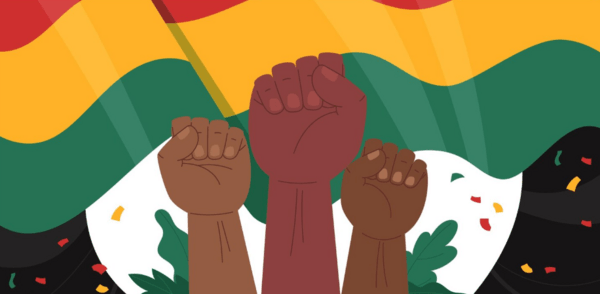Abstract
Pan-Africanism is both a political ideology and a cultural movement intended to unite people of African descent, including members of the African diaspora and those displaced due to slavery and colonialism. Its legacy can be seen today in how it has elevated the status of Black people and placed them in the same room and calibre as descendants of those who enslaved and colonised their ancestors.
Although the movement succeeded in achieving its main goal of securing the independence of African countries, it has not yet realised true African unity or economic independence. This essay illustrates why attempts at Pan-African unity have been problematic. It begins with an examination of the history and ideologies behind the formation of Pan-Africanism, provides an outline of its philosophical development and intended political application, and discusses key organisations and conferences. Finally, it analyses why African unity has remained elusive despite decades of effort.
Introduction
A Pan-African is any African individual who understands the issues facing Africa and her historical perspectives, has a direct connection with African heritage, desires political and economic freedom for the continent, and embraces the diversity of African peoples and their histories.
Background: History of Pan-Africanism
Pan-Africanism is a philosophy with a vision for an Africa that is united, free, and in control of its own destiny—socially, economically, culturally, and politically. It developed in response to colonialism and slavery, which shaped its foundational principles.
The ideals of Pan-Africanism came to the fore in 1900 when Barrister Henry Sylvester Williams organised the first Pan-African Conference at Westminster Town Hall in London. Its main objective was to protest the growing colonial domination of Africa. Thinkers like Martin Delany argued that Black people could not prosper alongside whites in the United States and should instead form their own nation.
Pan-African Organisations
In the 19th century, the first Pan-African Congress and the All-African People’s Congress were established to provide forums for political activism and calls for African unity.
In the 20th century, several Pan-African organisations emerged to promote unity and identify common issues among the African diaspora. Two key organisations were:
- The African Association, created by Henry Sylvester Williams, which encouraged Africans to embrace a shared identity reflecting their common heritage.
- The Organization of African Unity (OAU), founded in 1963, which sought to advance African unity and cooperation.
In 2000, it was proposed that the OAU be replaced by a new body. This led to the creation of the African Union (AU) in 2002, designed to strengthen the push for integration and collective development.
Impact of the Pan-African Movement
- In Africa, Pan-Africanism helped countries overcome colonial rule by achieving independence and promoting self-determination.
- In the United States, it influenced the rise of the Black Power movements in the late 1970s.
Analysis: Challenges to Achieving Pan-Africanism
Attempts to achieve Pan-African unity have been problematic due to both conceptual and practical difficulties.
The principle of sovereignty presents one of the biggest challenges. In the international system, sovereignty refers to territorial integrity and the rules governing states within defined borders. While the OAU charter firmly supported sovereignty as a principle of anti-colonialism, it also created barriers to deeper integration.
As Kwame Nkrumah asserted, “Independence is meaningless unless it is linked up with the total liberation of the African continent.” This reflects the disparity between being granted sovereignty and exercising it in ways that align with Pan-African ideals.
Although much effort has gone into promoting unity and political cooperation, the Pan-African project has faced contestation and controversy from within Africa itself. So far, the agenda for unity, progress, and restoration has been largely state-led, which has limited grassroots involvement.
Conclusion
In conclusion, attempts to implement Pan-African unity echo the fierce debates of the movement’s early leaders. Julius Nyerere once remarked that the first generation of independent African leaders did not pursue unity with the vigour, commitment, and sincerity it deserved.
Attempts at Pan-African unity remain crucial in addressing inequality within the global system. As Nyerere’s words suggest, while unity has not yet been achieved, it is far from irrelevant. For Africa to become self-reliant in the 21st century, re-imagining Pan-African strategies remains both urgent and necessary.
Also Read:
Rights of undertrial prisoners in India
How To Send A Legal Notice In India


